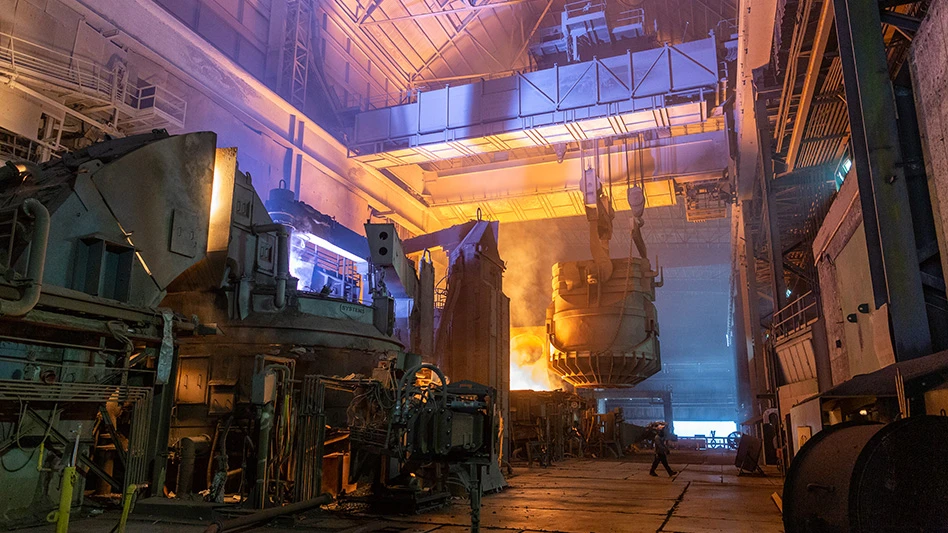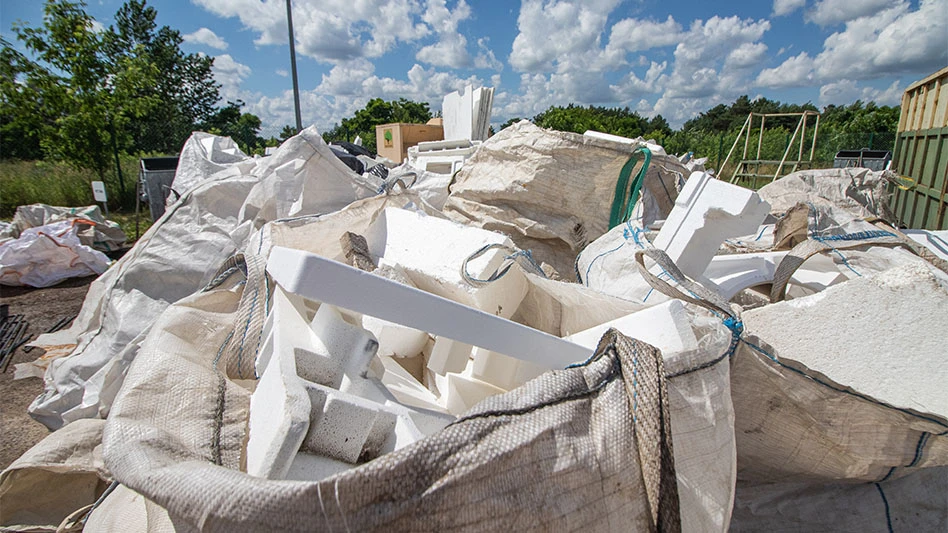According to the National Recycling Coalition (NRC), Washington, recent commentary titled “Recycling Makes Greenies go Gaga, but it's a Real Burden for the Rest of us” by William F. Shughart II, research director and senior fellow at the Independent Institute, “is replete with unfounded assumptions, gross generalizations and false statements that are dangerously misleading.”
Shughart’s column appeared on the Independent Institute’s website as well as in Newsday, the Sacramento Bee, the Providence (Rhode Island) Journal, the Pittsburgh Tribune-Review and other newspapers in mid- and late December 2015.
“We at the National Recycling Coalition know that recycling makes sound environmental policy, as well as sound business practice, resulting in significant environmental and economic benefits within our local communities, across the country and throughout the globe,” the organization’s board of directors writes in response to Shughart’s column. “It is an undisputed truth that more Americans—and more manufacturers—recycle today than in past decades, and they do so for good reason.”
The NRC continues, “If, in fact as Shughart asserts, ‘the costs associated with the process of recycling almost always outweigh the benefits,’ why do manufacturers around the world rely on recycled metal, paper, plastic and other commodities for meeting nearly 50 percent of their raw material needs? Here in the U.S., steelmakers rely on iron and steel scrap—processed from items as diverse as automobiles, household appliances, demolished bridges and old machinery—to make roughly two-thirds of the steel produced in the country every year. One-third of the U.S. aluminum supply comes from soda cans, aluminum siding and other forms of aluminum scrap.
“And paper? Shughart’s statement that ‘it’s more expensive and more resource-intensive to recycle old paper than to cut and pulp pine trees …” is patently false. If it were true, why would the U.S. paper industry rely on recovered fiber produced from such items as old newspapers, magazines, catalogs, office paper and used corrugated boxes for more than half of their supply need today? And yes, paper mills are beating down the door to buy quality scrap paper,” the NRC writes.
The NRC also takes issue with Shughart’s assertion that landfilling is better than recycling, noting that the U.S. Environmental Protection Agency says hazardous air pollutants have been found in uncontrolled landfill gas and that landfills are the third largest source of human-related methane emissions in the U.S.
Additionally, the NRC writes, using recycled feedstock instead of virgin material reduces the production of carbon dioxide by significantly saving the amount of energy needed to manufacture products.
“A true cost comparison of recycling and landfilling must examine the full costs of those services on a program by program basis,” the NRC writes. “There is great variation across the country. Researching the costs of each program requires an analysis of curbside collection and processing/management costs—however, the majority of recycling programs offer opportunities for revenues to offset some recycling costs—waste to landfill offers no such opportunity.”
The NRC says recycling creates jobs and stokes the economy by “supporting hundreds of thousands of jobs across the country and generating $11.2 billion in tax revenues for the federal, state and local governments.” According to the organization, “Every 10,000 metric tons of recyclables generates 37 jobs, which equates to $1.1 million in wages and $330,000 in tax revenues.”
The NRC adds that resource conservation is a major benefit of recycling that often is not taken into account.
“When one looks at the facts, it is clear that recycling makes much more sense than burying or burning our waste,” the NRC writes. “
The National Recycling Coalition’s board of directors comprises:
- Bob Gedert, NRC president;
- Stephen Bantillo, executive director, Recycling Certification Institute;
- Gary Bilbro, president, SMART Recycling of South Carolina;
- Robert J. Bylone Jr., executive director and president, Penn Recycling Markets Center;
- Jeffrey Cooper, business development manager, AECC Group;
- Jack DeBell, development director, University of Colorado Recycling;
- George Dreckmann, strategic initiatives coordinator, city of Madison, Wisconsin;
- MaryEllen Etienne, CEO, Reuse Institute;
- John Frederick, executive director, Intermunicipal Relations Committee;
- David Juri Freeman, recycling program manager, city and county of Denver;
- Marjorie Griek, principal, Pearl Consulting LLC;
- Brent Hildebrand, vice president of operations, Alpine Recycling and Waste;
- Doug Hill, president, EcoVision Environmental;
- Mark Lichtenstein, chief of staff and executive director of sustainability, State University of New York, College of Environmental Science and Forestry;
- Gary Liss, zero-waste consultant, Gary Liss & Associates;
- Fran McPoland, vice president, Paper Recycling Coalition & 100 Percent Recycled Paper Alliance;
- Michelle Minstrell;
- Maite Quinn, business development and marketing manager, Sims Municipal Recycling;
- Antonio Rios, president, Puerto Rico Recycling Coalition;
- Julie L. Rhodes, president, Julie L. Rhodes Consulting;
- Will Sagar, executive director, Southeast Recycling Development Center;
- Lisa A. Skumatz, principal consultant/research, Skumatz Economic Research Associates and nonprofit Econservation Institute;
- Michael Van Brunt, director of sustainability, Covanta;
- Robin Wiener, president, Institute of Scrap Recycling Industries; and
- Melissa Young, assistant director, Syracuse University Center for Sustainable Community Solutions.
Latest from Recycling Today
- Alpla calls 2024 year of recycling growth
- Altilium says agreement puts it on lithium recycling path
- NWRA, SWANA partner to address lithium-ion batteries
- Corinth, Texas, renews waste contract with CWD
- Fresh Perspective: Sarah Zwilsky
- Plastics Industry Association announces leadership changes
- QCC celebrates 50th anniversary
- Venture Metals acquires 2 nonferrous processors





